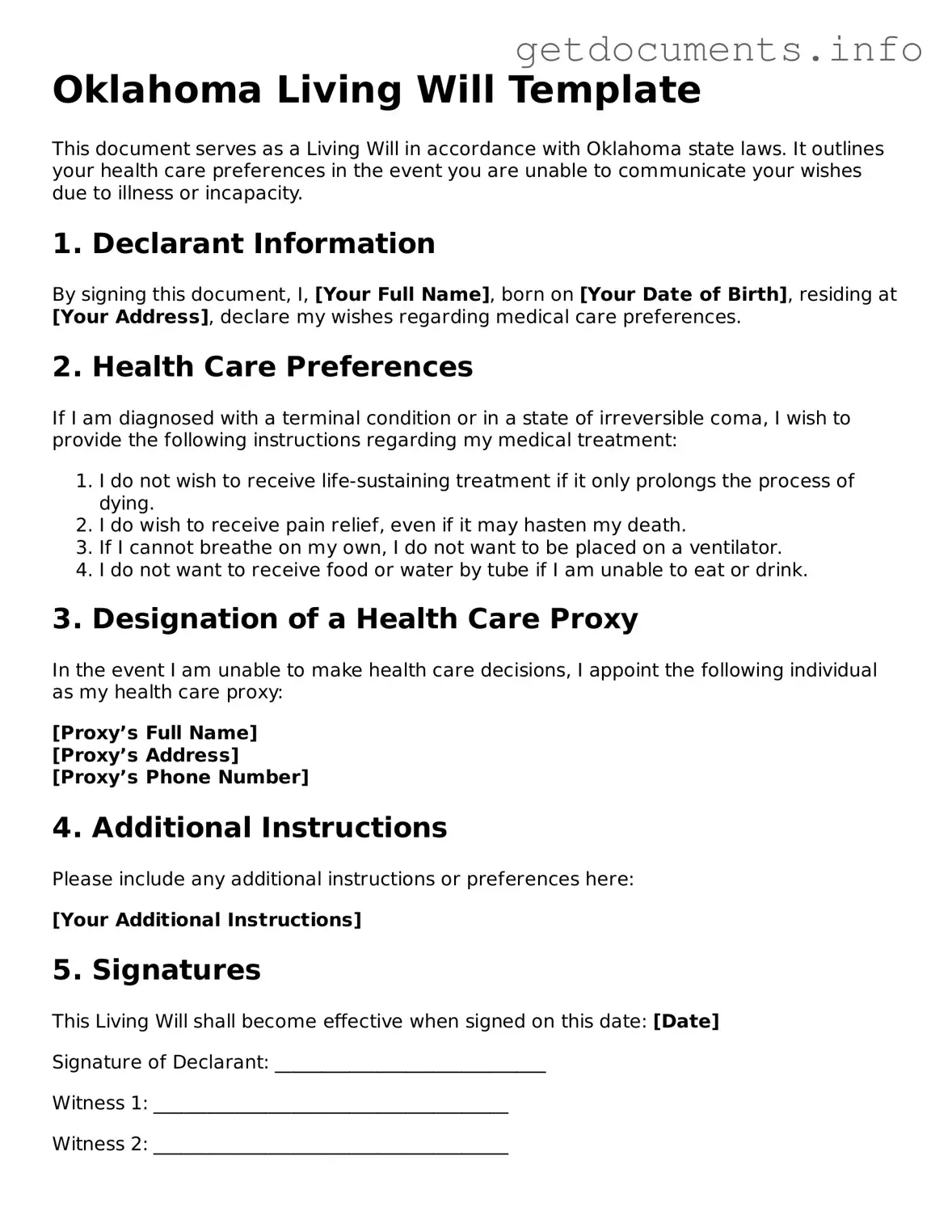Free Living Will Template for Oklahoma
A Living Will is a legal document that allows individuals to outline their preferences for medical treatment in case they become unable to communicate their wishes. In Oklahoma, this form provides clarity to healthcare providers and loved ones about your end-of-life care choices. Understanding how to properly fill out this form is essential for ensuring your wishes are respected.
Ready to take control of your healthcare decisions? Fill out the Oklahoma Living Will form by clicking the button below.
Access Living Will Editor

Free Living Will Template for Oklahoma
Access Living Will Editor
Got places to be? Complete the form fast
Fill out Living Will online and avoid printing or scanning.
Access Living Will Editor
or
⇩ PDF File
